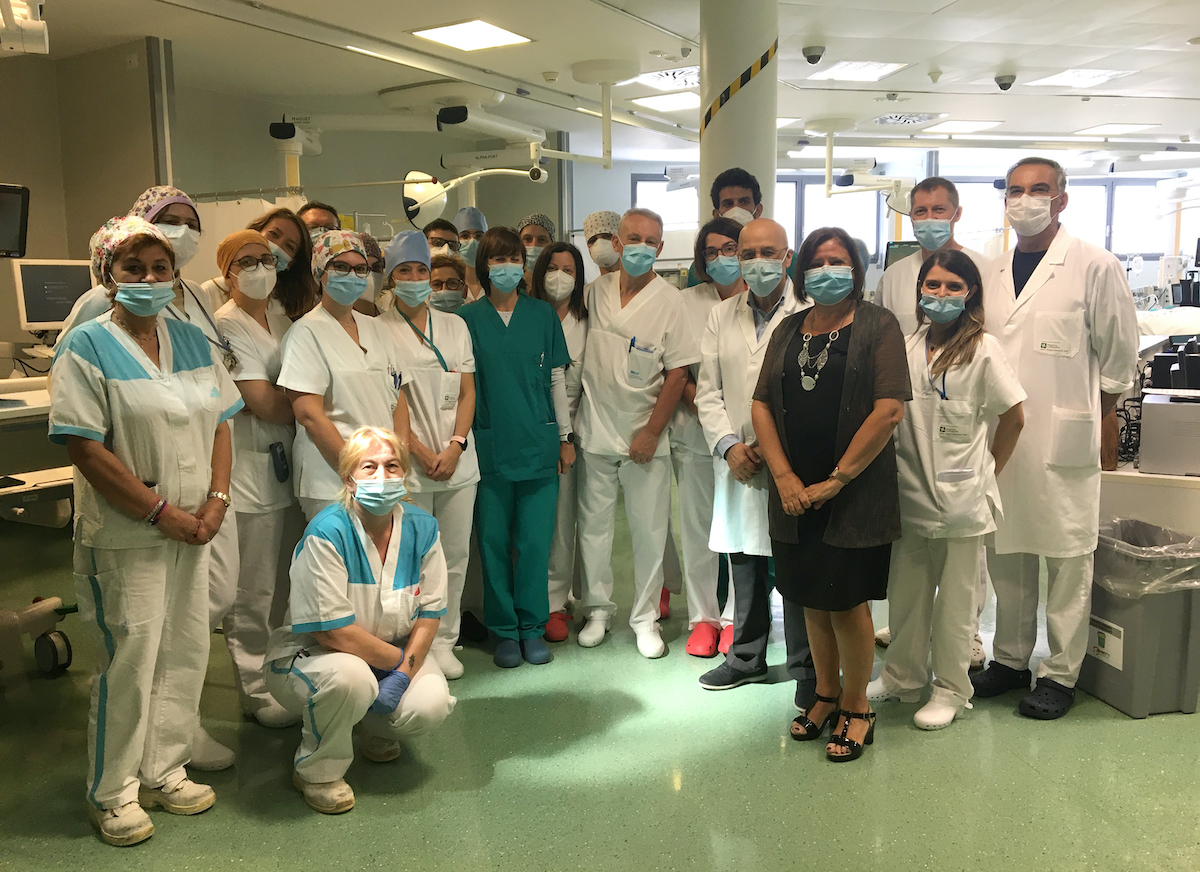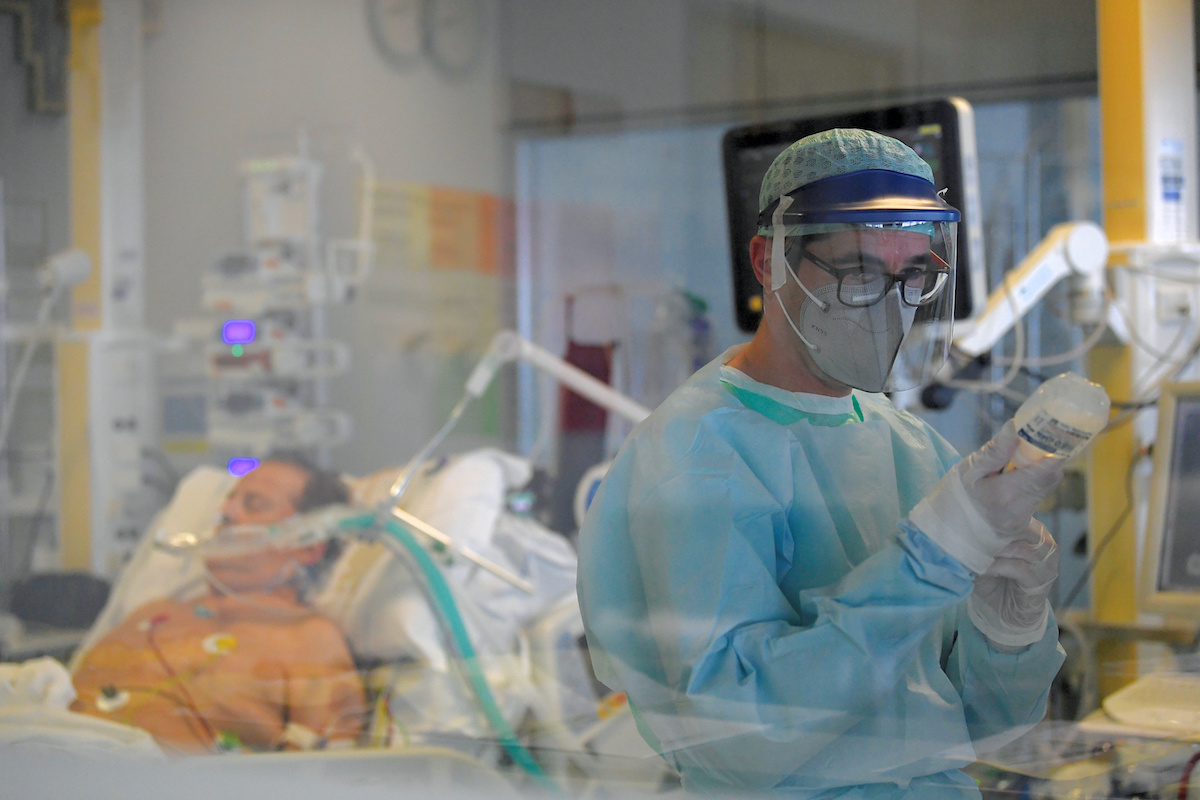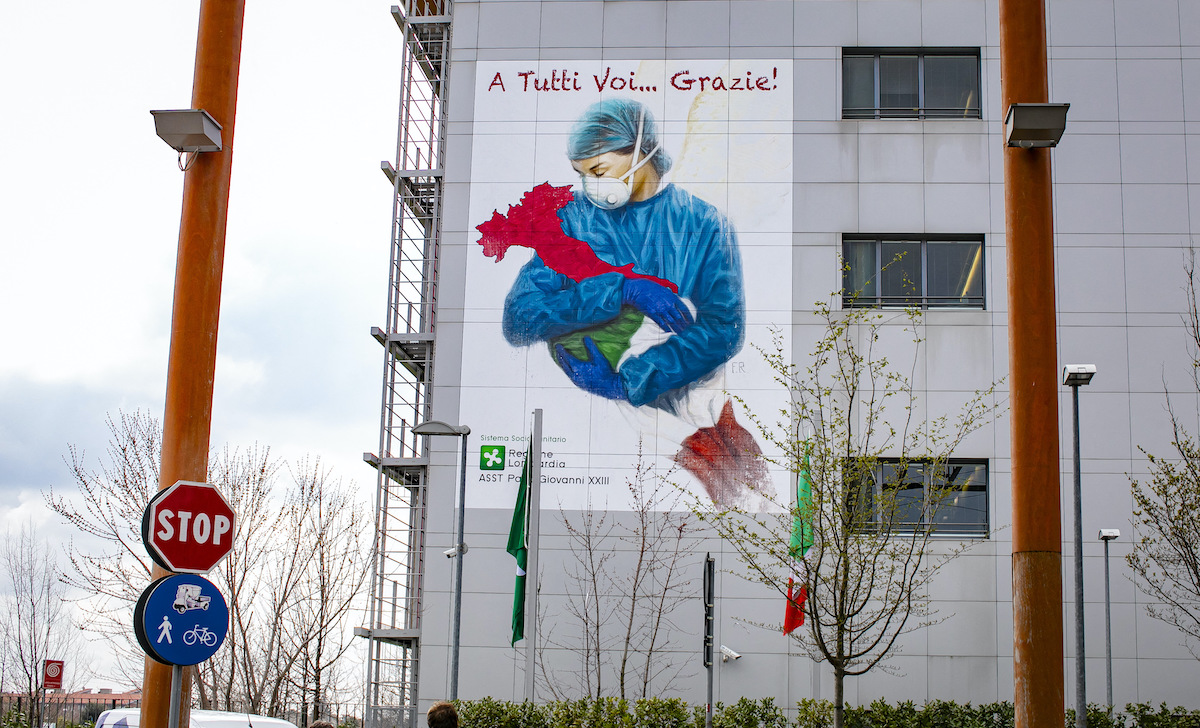
ROME — Staff at the Pope John XXIII hospital in Bergamo — once the epicenter of the COVID-19 pandemic in Italy — announced they had no more patients with coronavirus in their intensive care unit.
After 137 days of trying to keep critically ill patients alive, staff gathered July 8 for a moment of silence to remember those who passed away in their wards, followed by applause for the more than 400 hospital workers in the department.
“People must maintain an attitude of caution; it will do no harm to keep washing hands or wear a face mask until we get to zero infections, zero patients and zero dead.”
Maria Beatrice Stasi, director general of the hospital, told reporters they had discharged the last patient to recover from COVID-19, marking “a moment of great emotion” and relief as the intensive care unit can now accommodate other patients and staff can return to their regular uniforms.
At the worst point of the crisis, which began with their first patient being admitted Feb. 23, the ICU had more than 100 patients intubated.
Luca Lorini, head of the intensive care and reanimation department, told reporters July 8 that the exceptional effort and teamwork by staff led them to the “great result” of having no more COVID-19 patients in their unit.
“We had the courage to tell the truth” about the numbers of critically ill people they were treating, he said, and “what we did during this (early) phase saved a piece of the world,” he told Bergamo News.
“We showed we could do it with the little information and resources we had” at the start of the outbreak, but now “we must not be unprepared, we must prepare for a future that no scientist can foresee, but we must be ready for another return of COVID,” he said.
“People must maintain an attitude of caution; it will do no harm to keep washing hands or wear a face mask until we get to zero infections, zero patients and zero dead” from the coronavirus, he told the newspaper.
Meanwhile, another hospital in the hard-hit north of Italy was seeing its number of COVID-19 patients steadily diminishing.

Lorenzo Menicanti, chief cardiac surgeon at the San Donato hospital in Milan, told the online medical news service MedPage Today, his unit had been entirely dedicated to COVID-19 patient care when the 500-bed hospital found itself needing to care for 600 people ill with COVID-19.
Now they have had no new positive cases admitted to the hospital the past three weeks, he said July 7, and he attributed the country’s overall success in containing the spread of the virus to people complying first with the strict lockdown and then social distancing.
Health care workers have also improved in pinpointing “hot spots” and sources of infection and reacting fast to limit its spread, Menicanti told MedPage Today.
“Of course it’s not over, we know that,” he said. “But the population is very prudent and being very attentive to the rules.”
While new cases of infections keep oscillating around 200 new cases per day since June 27, the Italian bishops’ conference surveyed all diocesan Caritas agencies to see how they have been helping those in need during the crisis.
Results from the survey, posted on the bishops’ website July 1, show 96% of current requests for assistance were related to job and income loss. Other problems reported included paying rent and mortgages, psychological difficulties, problems with school, solitude, depression and delays in or unavailability of needed treatment or health care, it said.
About 34% of those assisted by Caritas reported it was the first time they had ever gone to Caritas for help, the survey found.
Of the thousands of Caritas workers and volunteers nationwide, young people had been instrumental in providing the needed assistance, since they had to fill in for many people who were over the age of 65 and were advised to obey quarantine measures.
Twenty Caritas staff and volunteers died out of the 179 who contracted COVID-19, it said.
While the numbers are not complete, at least 450,000 people were helped by Caritas from March to the end of May. The bishops boosted funding for Caritas so it could meet the demands in services, such as supplying personal protective equipment, food banks and deliveries, help lines, purchasing medicines and other medical supplies, support in hospitals and medical facilities, help for the homeless and those mourning deceased loved ones, and providing lodging for those needing to be isolated or put in quarantine.







